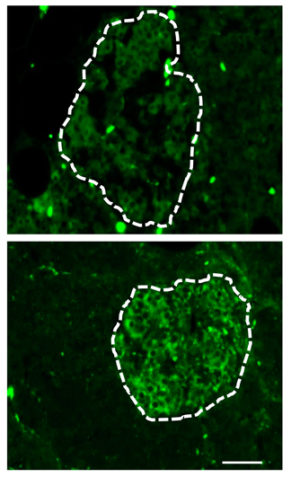While it is well known that type 2 diabetes is a common cause of Chronic Kidney Disease (CKD), researchers have just shown that the opposite may be true. The study, published in JCI, demonstrates that urea is directly responsible for impairing insulin secretion in CKD. In a press release, Laetitia Koppe, MD, PhD, from the University of Montreal Hospital Research Centre (CRCHUM) and first author of the paper said, “About half of those affected by chronic kidney disease have abnormal blood sugar levels. I wondered why. We conducted experiments in mice and found impaired insulin secretion from pancreatic beta cells, as observed in diabetes. We observed the same abnormalities in samples of pancreatic cells from patients with chronic kidney disease.”
The research team found that urea impairs insulin secretion by increasing islet protein O-GlcNAcylation and oxidative stress. Inhibition of O-GlcNAcylation restored insulin secretion. While it was previously thought that urea had negligible toxicity, recent studies are beginning to uncover pathophysiological effects of the waste product. Koppe’s study is the first to link urea and β cell dysfunction.

Immunostaining of O-GlcNAcylation in pancreatic sections from control (upper) and CKD patients (lower). Credit: Laboratory of Dr. Vincent Poitout, CRCHUM.
Dr. Vincent Poitout, CRCHUM Director and principal investigator of the study says, “Further studies are required to validate these findings in humans. But if our observations are confirmed, it will mean that patients with non-diabetic chronic kidney disease are at risk of developing diabetes.” Because of the observed role of oxidative stress and O-GlcNAcylation in β cell dysfunction, it was suggested that a therapeutic approach such as taking antioxidants may protect pancreatic beta cells and reduce the risk of developing diabetes.
See original article here.